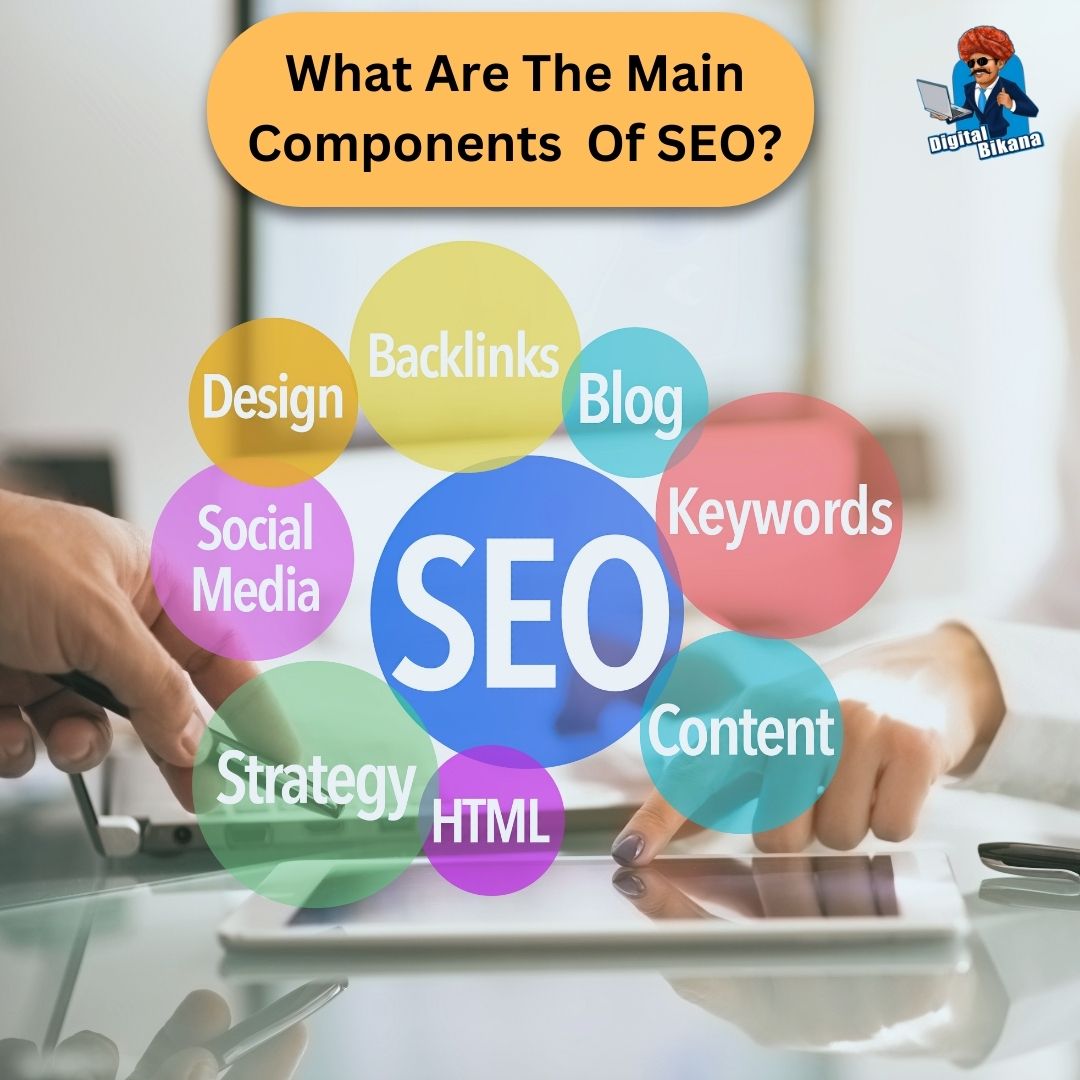What are the main components of SEO?
In this article we are going to talk about What are the main components of SEO? Search Engine Optimization (SEO) has emerged as an essential digital marketing strategy for businesses and individuals aiming to enhance their online visibility, attract organic traffic, and reach their target audience effectively. SEO encompasses various components that work together to optimize websites and content for search engines.
What are the main components of SEO?
In this article, we explore the key components of SEO and shed light on their significance in driving organic search engine rankings.
1. Keyword Research and Analysis
Keyword research forms the bedrock of a triumphant SEO campaign. It involves identifying the words or phrases that users enter into search engines when seeking information. Through comprehensive keyword research and analysis, businesses can understand the search intent of their target audience and identify the most relevant and valuable keywords to target.
Read Also: What is the Significance of User Experience in SEO?
2. On-Page Optimization
On-page optimization focuses on optimizing elements directly within a webpage to improve its visibility and relevance to search engines. Key on-page optimization components include:
a. Title Tags
These HTML elements define the title of a webpage and appear as clickable headlines on search engine result pages (SERPs). Optimizing title tags with relevant keywords and compelling language helps improve click-through rates.

b. Meta Descriptions
Meta descriptions provide a concise summary of a webpage’s content on SERPs. Well-crafted meta descriptions, enriched with targeted keywords, entice users to click on the link and visit the webpage.
c. Header Tags
Proper usage of header tags (H1, H2, H3, etc.) helps search engines understand the hierarchical structure of the content. Including relevant keywords within headers enhances the page’s overall relevancy.
d. URL Structure
Creating descriptive and user-friendly URLs that incorporate targeted keywords can positively impact search engine rankings and user experience.
e. Keyword-Optimized Content
Creating high-quality, informative, and keyword-optimized content is essential for on-page optimization. Strategic placement of keywords throughout the content helps search engines understand the webpage’s relevance to specific search queries.
Read Also: What is the Significance of Website Architecture in SEO?
3. Off-Page Optimization
Off-page optimization focuses on activities performed outside the website to improve its search engine rankings. The primary off-page optimization component is:
a. Link Building
Building high-quality backlinks from authoritative and relevant websites is a crucial aspect of off-page optimization. Backlinks serve as endorsements of the website’s credibility and can significantly impact search engine rankings. Engaging in outreach, guest blogging, content promotion, and social media marketing are common strategies to acquire backlinks.
4. Technical SEO
Technical SEO involves optimizing the technical aspects of a website to enhance its performance, accessibility, and search engine crawling and indexing. Key technical SEO components include:
a. Website Speed
Optimizing website speed through techniques such as image compression, minifying CSS and JavaScript files, and leveraging caching mechanisms is crucial.Websites that load quickly usually appear higher in search results.
b. Mobile Friendliness
With the rise in mobile device usage, search engines prioritize mobile-friendly websites. Responsive design, mobile optimization, and fast mobile page loading contribute to a positive user experience and improved search rankings.
c. Website Architecture
A well-organized website structure with clear navigation helps search engines understand the content and its hierarchy. Proper internal linking and creating XML sitemaps aid search engine crawlers in efficiently indexing webpages.

5. User Experience (UX)
User experience plays a vital role in SEO. Search engines aim to deliver the best results to their users, which includes prioritizing websites that offer a positive user experience. Factors that impact UX include website design, page load speed, mobile responsiveness, easy navigation, clear and engaging content, and intuitive user interface.
You can also checkout this digital marketing institute to learn digital marketing course by enrolling in our course Or Contact Digital Bikana on +91-8949483728
Conclusion:
Search Engine Optimization (SEO) is a multifaceted strategy that incorporates various components working together to improve a website’s visibility and ranking in search engine results. From comprehensive keyword research and on-page optimization to off-page promotion and technical enhancements, each component plays a crucial role in driving organic traffic and maximizing online presence. By understanding and implementing these components effectively, businesses and individuals can unlock the power of SEO and achieve their digital marketing objectives. So, Now I hope you have understood about What are the main components of SEO?

